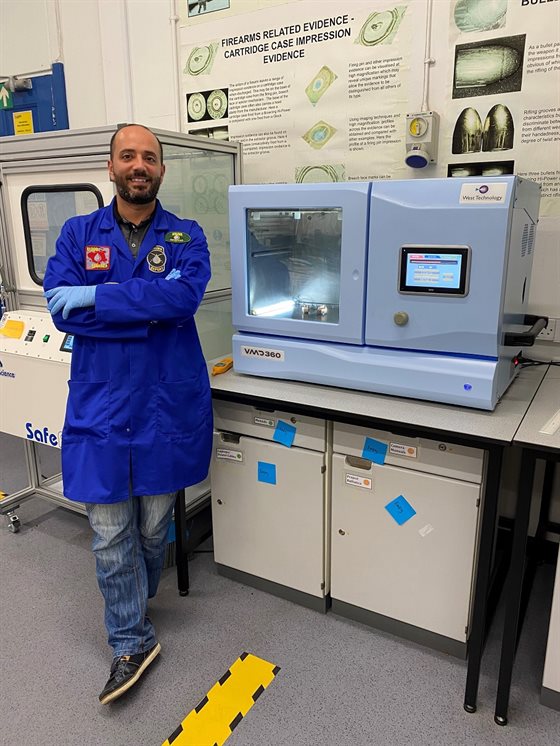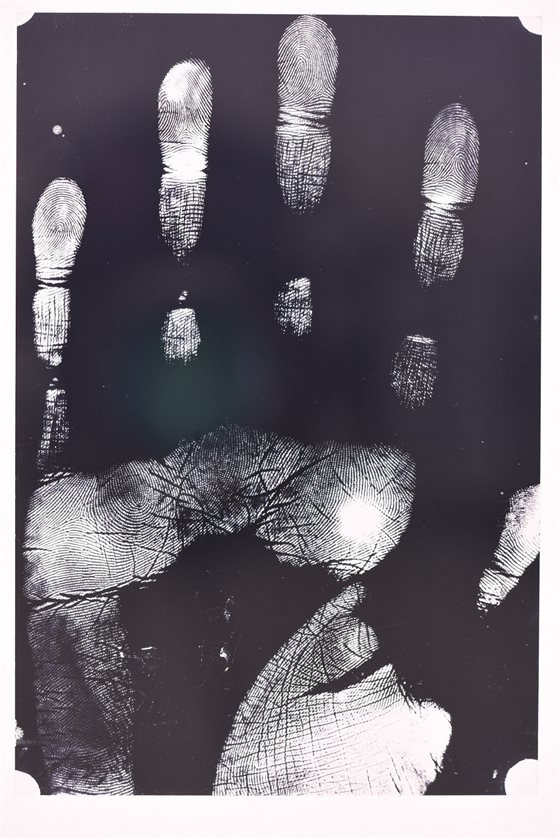Researchers at De Montfort University Leicester (DMU) are exploring how precious metals can be used to detect fingerprints on biodegradable and compostable plastic bags.
Dr Kevin Farrugia, senior lecturer in Forensic Chemistry, is leading a project to determine the most effective and efficient ways to identify fingermarks on the biodegradable plastic bags that are becoming increasingly popular with big-name supermarkets and shops.
To do this, Dr Farrugia will use a range of development techniques including one called Vacuum Metal Deposition (VMD), one of the most powerful fingermark development techniques available.

Dr Kevin Farrugia will lead the research using the VMD
Using a very small amount of gold or silver, the VMD works by creating a vacuum and reducing the temperature needed for the metals to reach their boiling point. Once evaporated, the gold or silver is then absorbed into the ridges of any fingerprints that are present on the material being examined.
To improve the visibility of any marks, another metal is added, such as zinc, to create a higher quality image with excellent contrast and ridge clarity.
“It is great to see new materials being developed, especially those that are being developed to be more environmentally friendly,” said Dr Farrugia.
“However, it is really important that we also identify the best methods of fingerprint detection for these new materials. It’s about understanding whether current methods and sequences suitable and as effective for these types of materials.”
Plastic bags labelled as biodegradable or compostable may include vegetable matter like potato or corn starch, which is known to fully break down and are therefore considered an alternative solution to free landfill problems.
RELATED NEWS
Experts say rounded-tip knives could reduce violent crime
It's in her DNA: Forensic Science lecturer wins National Teaching Fellowship
Interested in studying at DMU? Join our next Digital Open Day
“VMD is a proven method for the detection of fingermarks on a variety of substrates and one of the good things about this method is that it doesn’t involve the use of anything toxic,” continued Dr Farrugia.
The VMD equipment that Dr Farrugia and his colleagues will use for this research, a VMD360 worth £40,000, has been loaned to DMU’s Forensic Research Group free-of-charge for six months by vacuum manufacturer West Technology.
“The equipment will also give us an opportunity to better understand the sensitivity of the techniques for the detection of fingermarks on these plastics and we will be gathering a varied pool of fingerprint donors, including males and females, to ensure we are being as thorough as possible.

“We are very grateful to West Technology for providing the equipment for our research,” added Dr Farrugia. “As well as gaining and imparting knowledge, we want our work to have a positive impact for police forces and also have an impact on real-world cases.”
Dr Farrugia Kevin is actively involved in research related to the enhancement of both fingermarks and footwear marks, in addition to integrated approaches of multiple types of evidence.
He has more than 14 years’ experience in Forensic Science and is a member of various professional bodies including the Royal Society of Chemistry, the Chartered Society of Forensic Sciences, the International Association of Identification and the International Fingerprint Research Group (IFRG). He has also participated in a UK Government review of fingermark evidence documentation which includes aspects of his research.
Posted on Tuesday 15 December 2020